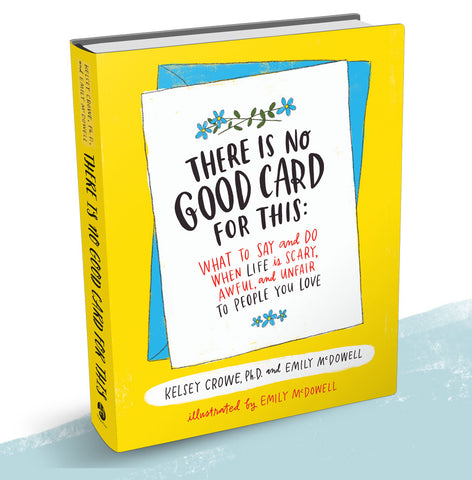What to Say When Your Main Role Is to Listen
We put so much pressure on ourselves to say the perfect thing, don’t we? That’s one of the biggest hurdles in trying to be there for someone during a difficult time. But when your life is falling apart, there’s no magical phrase to make it all better. In fact, there’s really nothing you can say to someone to make it hurt less or feel okay, mostly because the person suffering doesn’t actually need you to talk. They need you to listen. To be present. To be okay with silence if they don’t feel like talking.
Silence isn’t inherently awkward—it just feels that way because we’re not used to it.
The best way to figure out how someone is feeling is also the simplest: Ask them. “How are you?” sounds so basic, but most people will appreciate it. It tells the person that you remember and you care about what’s happening. And yet, it doesn’t require a long commitment to a conversation if they don’t feel like talking.
Sometimes, a better question is “How are you, today?” If it’s in the first days or weeks after a major, difficult event—like a pandemic JUST FOR EXAMPLE, or a death, or a diagnosis—it’s a safe bet that your friend isn’t feeling awesome. One way to get around this is to add “today” to your “How are you?” check-in. That one little extra word acknowledges that overall, you’re aware that her life totally sucks at the moment, and that you get there are good days and bad days. It turns what can feel like an overwhelming question into a manageable one.
Another good thing to ask is “What’s that like for you?” or “How’s that been for you?” This gives the person the chance to open up in whatever way feels best to them. Say you ask your friend how she’s doing, and she says, “Okay. My mom is still in the hospital.” Instead of offering up your own conclusion or story in response—like, “That must be terrible!” or “It was really hard when my uncle was in the hospital, too”—you can just say, “Oh, how’s that been for you?” This gives her a lot of latitude to respond however she likes/needs. She may be in the mood to talk about feelings, or maybe she’d rather rant about how stressful it’s been to manage some other aspect of the situation.
It’s important to focus on the person’s feelings, not just the facts. This one is extra tricky right now, when there’s so much uncertainty, anxiety, and fear ricocheting around the world about Covid. These days, when we find out someone is ill, the first place our minds go is “What are their symptoms? What happened?” In other words: “Could this happen to me?” This is self-preservation, which is natural and normal. But for your friend whose dad is in the hospital, answering these kinds of questions is exhausting and frustrating. When your goal is to be supportive, your primary concern should be finding out how your friend is feeling. Instead of asking a ton of clarifying questions about their loved one’s situation, try asking, “How are you doing with it?” There’s always time to get the facts later.
Even though it’s tempting, you can’t assume you know how someone feels. Splitting up with your ex destroyed you, so you definitely know how it feels to be your friend who just got dumped, right? Well, no. We all move through loss differently, and relationships are complicated. Empathy gives you insight into some of the emotions your friend might be having, but saying “I know how you feel” can sound dismissive of her unique experience. The instinct to try to relate to someone’s situation by sharing your own story is totally human, but it can be counterproductive. It takes the focus off the person who actually needs support. Try asking something like, “How’s it going for you?” instead.
The best thing you can offer someone in their darkest hour is not your fancy talk, your theories, your extensive internet research on cures, or even your spiritual guidance. It’s your willingness to simply be present and not run away.
And if for some reason your effort isn’t welcomed or wanted, it’s not because you’re not good at being kind. Or because there’s something wrong with you. It’s just that your particular offer wasn’t needed at the time. A person who’s struggling doesn’t need you to skillfully talk them out of their pain (which is impossible, anyway). They mostly just need the kindness and generosity of heart that compels you to try in the first place.
--Emily
For more on this topic, check out my 2017 book, There Is No Good Card for This: What to Say and Do When Life is Scary, Awful, and Unfair to People You Love (available on Amazon or at Indiebound). Co-authored by Emily McDowell and empathy expert Dr. Kelsey Crowe, and illustrated by Emily, it’s a down-to-earth guide to help you feel confident in supporting anyone experiencing grief, illness, or any other tough situation.



